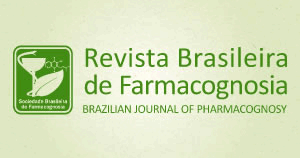Plants have been found to be useful as memory enhansers as well as antiaging. Twenty two of such plants from sixteen families were investigated for their acetylcholinesterase (AChE) and butyrylcholinesterase (BuChE) inhibitory activities using the in vitro Ellman's spectrophotometric and in situ bioautographic methods with physostigmine as standard. At least three morphological parts were examined for each of the plants investigated and the test concentration was 42.5 µg/ mL. Some plants were active on both enzymes though with some morphological parts being more active than others. The root bark of Spondias mombin showed the highest activity to the two enzymes; 64.77% and 83.94% on AChE and BuChE respectively. Other plant parts of the selected plants exhibited some remarkable selectivity in their actions. Those selectively active against AChE were Alchornia laxiflora stem bark (41.12%) and root bark, Callophyllum inophyllurn root bark (56.52%). The leaves of C. jagus (74.25%), Morinda lucida leaves (40.15%), Peltophorum pterocarpum leaves and stem bark (49.5% and 68.85%, respectively), physiostigmine gave 90.31% inhibition. Generally higher activities were found against BuChE. Bombax bromoposenze leaves, root bark and stem bark were particularly active. The inhibition was over 80%. Other selective plant parts are the leaves Antiaris africana, Cissampelos owarensis aerial parts (78.96%), Combretum molle leaves and stem bark (90.42% and 88.13%, respectively), Dioscorea dumentorum root bark and tuber (over 87%), G. kola leaves, Markhamia tomentosa root bark, Pycnanthus angolensis stem bark and Tetrapleura tetraptera leaves. Most of these plants are taken as food or are food ingredients in Nigeria and may account for the low incidence of Alzheimer's disease in the country and may play certain roles in the mediation of the disease.
Ethnomedicinal plants; acetylcholinesterase; butrylcholinesterase; memory loss

